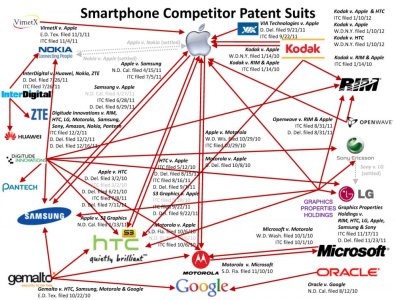Jingles
Member
- Joined
- May 9, 2011
- Messages
- 1,235
I take a middle of the road. It should not be permanent, but you should get first crack at it.
It is a tough situation.
That's what the market does. The one who first produces a good or services maintains a great advantage in profits, name promotion (brand name), etc... They will have great gains in the short term, but when you introduce a patent into the equation they will not be incentived to continually improve on their product by others who will to produce the good or service as well (who wish to produce it in a more effective, efficient, cheaper, and a better quality product). So if you grant someone a monopoly on this you shield them from the market, in effect, reducing the continual advancements to be made in the product for the firm/person that created the product "first" does not have the need to improve on the product for they don't have to (for they have no legally allowable competition). Patents stifle the process of the market.
Last edited:



 Reminds me of the various pop stars who were suckered into giving exclusive (or mostly exclusive) "ownership" of profits earned by "performances" of songs to record companies. IIRC, Don McLean gave up most rights to "American Pie" in order to get published. It made a lot of money for the publishers, and he got some scraps. Did you know the "Happy Birthday" song is copyrighted?
Reminds me of the various pop stars who were suckered into giving exclusive (or mostly exclusive) "ownership" of profits earned by "performances" of songs to record companies. IIRC, Don McLean gave up most rights to "American Pie" in order to get published. It made a lot of money for the publishers, and he got some scraps. Did you know the "Happy Birthday" song is copyrighted?  To this day, "performances" (using the definition in the Copyright act, of course) of this song earn royalties for the copyright owner. (I don't recall his name now).
To this day, "performances" (using the definition in the Copyright act, of course) of this song earn royalties for the copyright owner. (I don't recall his name now).